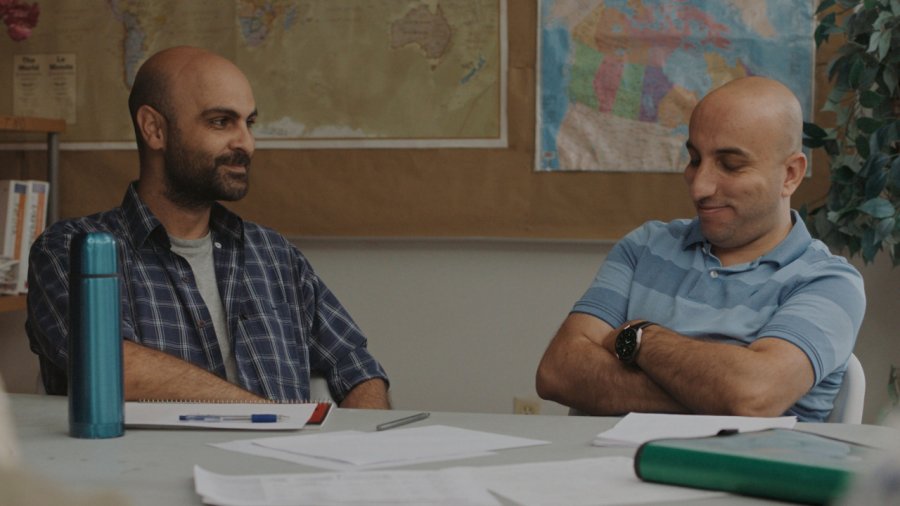May 2, 2023
SEOUL – JEONJU, North Jeolla Province — For those who enjoy the cinematic experience without such stringent requirements as a discernible plot, for those who relish artful ambiguity and tightly framed shots awash in rising natural sounds, the ongoing film festival in Jeonju, North Jeolla Province, beckons once again as a reprieve in a moviegoing world defined by blockbusters and safe formulas.
Jeonju International Film Festival opened its 24th iteration on Thursday and runs through May 6. The film festival has long held its focus on independent films looking to try something new. Following are a selection of foreign movies highlighted across a range of categories outside of competition at the festival.
‘Samsara’
“Samsara” is one of the three films being presented in the Jeonju Cinema Project section, having received production funding from the festival. The funding program seeks to promote and encourage directors and projects with the ability to surprise.
Shot in Laos and Tanzania, the film from Spanish director Lois Patino, making its Asian premiere here, is auditorily and visually trance inducing.
In rural Laos it centers on child Buddhist monks and a teen boy reading Tibetan teachings to an old woman nearing death. In the second half, a baby goat is born in a Zanzibar ocean-side village where Islam is observed. Threading them together is an experimental, experiential transference of souls where the audience is invited into a cinematic portal that seems to defy time, where they awake anew a continent away.
In its totality, “Samsara” presents a deeply meditative, spiritual exploration of commonalities across cultures of how we experience and explain life and death, and how to interpret the feelings that surround them.

“Concrete Valley” (Jeonju IFF)
‘Concrete Valley’
Canadian film “Concrete Valley” had its Asian premiere in the World Cinema category at Jeonju. One among many anticipated topical films, the titular concrete valley refers to the “arrival city” in Toronto where immigrants are initially settled, but also where they are neatly separated from the larger community in their lush surroundings.
Director Antoine Bourges, speaking to the audience in Jeonju after the first screening on Friday, explained the rundown Utopian buildings can also be a place where people “get stuck.” Performers in the film are themselves residents of the community on which the film is based.
While the film centers around a Syrian family, it shows people from around the world thrown together and having to rely on each other.
A theme of transition pervades the film, as the characters’ shifting identities resonate in the ambiguity. Scenes the audience has seen play out are retold and intentionally reframed later in a way that challenges and alters the understanding.

“God & Lunaparks Warriors” (Jeonju IFF)
‘God & Lunaparks Warriors’
Polish narrative documentary “God & Lunaparks Warriors” likewise made its Asian premiere in the World Cinema section. The film unfolds as a road trip led by a “religious fanatic” son on a last-ditch effort to convert his ailing, firmly rational father, notorious anti-religious author Andrzej Rodan.
As they drive, the devoutly Catholic Pawel arranges for them to hear the personal testimonies of miracles, while also stopping at church services and praise festivals. The complicated relationship of a father and his son who runs counter to his life’s work plays out in messy fashion, while interspersed home videos from decades earlier show a simpler connection.
Contentious topics ranging across Poland’s political situation, abortion, condoms and religious genocide are not skipped over, but they are not dwelled on, as the film favors its focus to the personal. With remarkable heartfelt sincerity — despite the many preachers appearing — the film avoids any sense of “preachiness.”
As the father and son travel together, they encounter immense grace and love. They are implored to treat their relationship as precious no matter the differences, and that it is not the duty of one to convert another.

“The Hotel” (Jeonju IFF)
‘The Hotel’
With the films at the festival having been produced over the last few years, it comes as no surprise that for many of them, COVID-19 is at least a background character, seen when crumpled masks are shoved into pockets or observed in the small sets designed for compliance. In “The Hotel,” set and filmed in Chiang Mai in early 2020, the novel coronavirus could ask for top billing.
Chinese director Wang Xiaoshuai was himself at a hotel in the northern Thai city for the Lunar New Year holiday when the pandemic disrupted worldwide travel. He quickly went to work with his screenwriter wife, Ning Dai, to create a movie centered on 19-year-old Sova, played by his daughter, Ning Yuanyuan. They pulled together a Mandarin-speaking cast and local crew to make a movie that is very “in the moment,” filmed in just 14 days.
Fittingly in the Masters section of the film festival, the black-and-white film is broken down into chapters presented in non-chronological order, replicating a sense of the universal disorder.
COVID-19 is the unseen character with an overbearing presence, leading some guests to live in fear of each other and the air around them, while loneliness drives others closer and desperation creates allies trying to escape back home. Tension and uncertainty create a feeling of an end-of-days spent in mundane luxury, with undertones of mystery as to how the characters could become — or may already be — connected.

(Kevin Lee Selzer/The Korea Herald)
The Jeonju International Film Festival continues in Jeonju, North Jeolla Province, through Saturday. This year’s festival includes 247 films from 42 nations.
For screenings of all the films mentioned here, and many more, check the schedule on the festival’s website.


